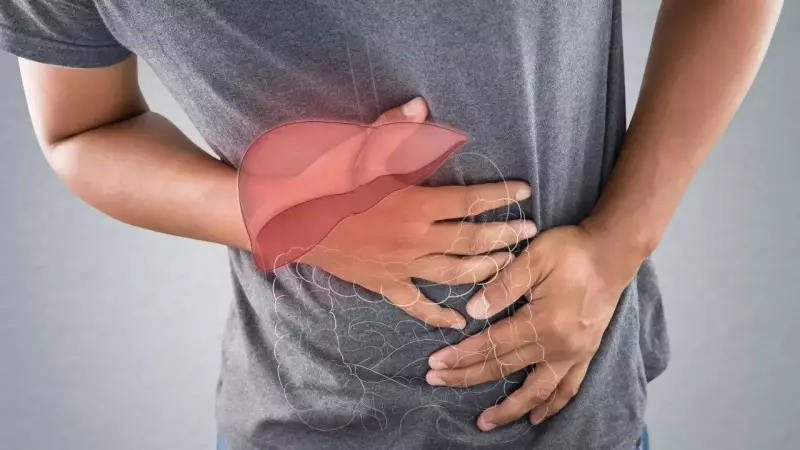
Liver transplantation emerges as a critical life-saving procedure when the liver permanently loses its ability to perform essential bodily functions. This dire situation typically stems from long-term chronic illness, sudden acute liver failure, or severe complications arising from existing conditions. The insidious nature of liver disease, which often progresses silently, means many individuals remain unaware of a problem until symptoms become pronounced and unmistakable.
Recognising these early warnings is paramount for timely medical intervention, which can dramatically improve treatment outcomes and prevent a life-threatening crisis. While not every symptom directly points to the need for a transplant, heightened awareness of bodily changes ensures you seek the right medical support precisely when it's needed most.
Understanding When A Liver Transplant Is The Only Option
A medical professional typically recommends a liver transplant when the organ is damaged beyond its capacity to sustain vital functions. This severe damage is most frequently caused by conditions like cirrhosis, chronic hepatitis, fatty liver disease, alcohol-related damage, autoimmune liver disease, metabolic disorders, or acute liver failure.
Before arriving at this conclusion, doctors conduct a comprehensive evaluation. This assessment includes analysing the patient's symptoms, a series of blood tests, advanced imaging results, calculating the MELD score (Model for End-Stage Liver Disease), and reviewing the individual's overall health status.
Key Warning Signs You Should Never Ignore
According to research published in Frontiers in Medicine, patients with advanced cirrhosis commonly develop decompensated features. These include ascites, jaundice, and hepatic encephalopathy—symptoms strongly linked to the progression towards end-stage liver disease and the subsequent necessity for a transplant.
1. Advanced Symptoms of Chronic Liver Disease
Many individuals heading for a transplant suffer from long-standing liver conditions like cirrhosis. As the disease advances, symptoms intensify and may encompass:
- Unrelenting fatigue and profound weakness
- Significant loss of appetite and unintentional weight loss
- Jaundice, marked by a yellowing of the skin and eyes
- A tendency to bruise or bleed very easily
- Intense and persistent skin itching
When these signs persist despite ongoing treatment, they strongly indicate that the liver is moving towards complete failure.
2. Severe or Worsening Jaundice
Jaundice manifests when the liver becomes incapable of processing bilirubin effectively. While mild cases can be temporary, a persistent or deepening yellow discoloration of the skin and eyes serves as a major red flag for severely compromised liver function. This is especially concerning when jaundice appears alongside other symptoms like dark urine, pale stools, or abdominal swelling, potentially signalling advanced disease requiring immediate transplant evaluation.
3. Ascites (Fluid Buildup in the Abdomen)
Ascites ranks among the most frequent complications of cirrhosis. Fluid accumulates in the abdominal cavity due to increased pressure within the liver's blood vessels and a reduction in protein production. Key symptoms include a visibly swollen or enlarged abdomen, difficulty breathing, rapid weight gain, and an elevated risk of serious infections like spontaneous bacterial peritonitis (SBP). When ascites stops responding to medication or requires repeated drainage procedures, a liver transplant often becomes the next necessary step.
4. Hepatic Encephalopathy (Mental Confusion)
This condition arises when a failing liver cannot remove toxins from the blood, allowing them to build up and impair brain function. Hepatic encephalopathy can range from mild to severe, with common symptoms being confusion or disorientation, forgetfulness, noticeable shifts in mood or personality, difficulty concentrating, tremors or a fluttering hand motion, and in its most advanced stage, coma. Severe or recurring episodes of encephalopathy are a major indication of worsening liver function and frequently lead to a transplant assessment.
5. Frequent and Severe Infections
Advanced liver disease severely weakens the body's immune system, leaving it vulnerable to a host of infections. Individuals with liver failure may experience recurrent bacterial infections, skin infections, respiratory illnesses, and kidney-related complications. A pattern of repeated infections, particularly those necessitating hospitalisation, strongly suggests the liver can no longer support normal immune defences.
6. Gastrointestinal Bleeding
One of the most dangerous complications of liver cirrhosis is the development of varices—enlarged, fragile veins in the oesophagus or stomach caused by portal hypertension. These veins can rupture, leading to life-threatening haemorrhaging. Critical warning signs include vomiting blood, black and tarry stools, and feelings of dizziness or fainting. Recurrent bleeding from these varices is a powerful signal that liver function has deteriorated significantly.
7. Acute Liver Failure
Unlike its chronic counterpart, acute liver failure develops with shocking speed, sometimes in a matter of days or weeks. Potential causes include viral hepatitis, drug-induced liver injury (such as from excess paracetamol), autoimmune hepatitis, or genetic disorders. Symptoms like confusion, jaundice, bleeding disorders, and swelling can appear suddenly. Acute liver failure constitutes a medical emergency that often requires urgent evaluation for a transplant.
Taking Action: When to See a Doctor
If you or someone you know is experiencing persistent jaundice, unexplained abdominal swelling, mental confusion, any form of gastrointestinal bleeding, or a general worsening of chronic liver disease symptoms, it is crucial to immediately consult a hepatologist or a transplant specialist. An early and thorough evaluation significantly improves potential outcomes and helps determine eligibility for advanced treatments, including a life-saving transplant.
Disclaimer: This article is intended for informational purposes only and should not be interpreted as medical advice. Please consult a qualified healthcare professional before implementing any changes to your diet, medication, or overall lifestyle.





